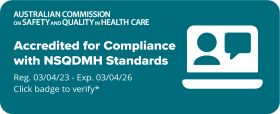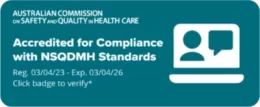Quick facts
-
People living with dissociative identity disorder (DID) experience two or more separate personality states called ‘Alters’, ‘personalities’, or ‘parts’.
-
The majority of people with DID have been through severe trauma in early childhood, and dissociate as a way of coping with a situation that is too violent or traumatic for their conscious self to handle.
-
Treatment and support can help people with DID lead long and fulfilling lives.
-
What is dissociative identity disorder?
Dissociative identity disorder (DID) is a complex psychological condition characterized by a type of dissociation where a person experiences two or more distinct identities called ‘Alters’, ‘personalities’ or ‘parts’. It is usually a long-term condition that occurs in response to extreme trauma. DID was called multiple personality disorder until 1994, when the name was changed to reflect a better understanding of the condition.
-
What are the symptoms of dissociative identity disorder?
A person needs to meet the following criteria to be diagnosed with DID1:
- Two or more distinct identities or personality states, each with its own way of thinking and relating.
- Amnesia and gaps in the recall of everyday events, personal information or traumatic events.
- The experiences are not part of normal cultural or religious practice, or part of childhood imaginary play. For example, a child having an imaginary friend does not mean they have DID.
- The symptoms are not because of substance abuse or other medical conditions.
People with DID also commonly experience symptoms of complex PTSD and other mental health issues, like depression, anxiety disorders, sleep disorders, eating disorders, and suicidal thoughts1.
DID looks different for each person, and people can have a range of symptoms which appear at different times. Some people have a small number of Alters, while others can have dozens or hundreds. People with DID may be aware of their Alters and be able to co-exist in harmony, while others may not.
"I have mild awareness of some Voices, like shadows I notice from time to time. Others I have complete awareness of both their sound and what I believe they look like. I am aware of their preferences, moods, attitudes, behaviours and what they are capable of."
Some people also experience ‘co-consciousness’ where more than one Alter has some awareness at a time, while others may experience memory loss (dissociative amnesia) at these times. An episode of amnesia can occur suddenly and may last minutes, hours, months, or years. A person may not be aware that they have experienced memory loss. Despite stigmatising portrayals of people with DID and their Alters in the media, there is no link between DID and violence. People with DID are safe to care for children and be part of the community and employment.
-
How common is dissociative identity disorder?
Estimates on the prevalence of DID vary widely, and few studies are available using up to date diagnostic criteria. In the general community, it is estimated that around 1.5% of US adults meet diagnostic criteria for DID2, but other studies estimate it is more common because DID is often underreported.
-
What causes dissociative identity disorder?
DID is caused by severe childhood trauma, such as physical, verbal or sexual abuse3.
-
Managing dissociative identity disorder
Some people find these strategies helpful for living with DID:- Learning more about DID – what it is, how it developed, and how your own experiences tie in.
- Finding self-care and stress management techniques that work for you.
- Learning grounding techniques and other distress tolerance skills.
- Trialing different organization and time management strategies, including ways of communicating with Alters or compensating for memory troubles. For example, keeping a diary or app to track commitments, appointments, and medications.
- Developing plans for what to do in an emergency, like creating a safety plan with emergency contact details.
- Connecting with others who have DID through support groups, online forums, or social media.
-
Treatment and support for dissociative identity disorder
While there is no known ‘cure’ for DID, treatment and support for DID is available, including psychotherapy. It can take a long time to figure out the right treatment, but there can be significant benefits. For many people, the aim is to achieve a state of ‘resolution’ where Alters co-exist harmoniously without impacting the person’s goals and coping, or to have better control over switching.
People with DID should try to see a mental health professional with experience with dissociation and trauma-informed care. It might take time to find the right mental health professional, but it is important to persevere and explore options.
Treatment for DID is usually long-term and involves stages4:
- The first stage focuses on stabilising symptoms and ensuring safety.
- The second stage involves processing traumatic memories and working with trauma-based unhelpful beliefs.
- The third stage focuses on life issues, goals, and supporting healthy relationships.
Treatment can help people with DID cope with symptoms, but can also help in other ways. For example, treatment can help people manage their emotions, improve relationships and a sense of connection, cope with stress, manage work or study, and more.
While there is no medication that can treat dissociative disorders themselves, medications may be prescribed for associated depression, anxiety or other health issues.
-
Supporting someone with dissociative identity disorder
If someone you love has been diagnosed with DID, you may feel overwhelmed and confused.
It can help to educate yourself as much as possible about DID. It’s a great idea to look up information, Forums and other support groups relating to DID. Talk to a mental health professional to get accurate information and to voice your concerns.
Treatment for DID involves revisiting past traumatic experiences, which may be upsetting for friends and family. Make sure you look after yourself, and seek help to look after your own mental health.
Self-help strategies include:
- Make time to regularly do things you enjoy, either alone or with friends.
- Talk to people you trust about how you feel. Ask a health professional or contact SANE’s free counselling support for details of support groups and other services for family carers in your local area.
- Try to focus on the things that you can control, not on the things outside of your control. It’s okay to not know what to do or what to say.
Living with DID can be challenging, but with support a full and meaningful life is possible.
To chat with others who live with mental health issues, including DID, visit our safe and anonymous online forums.
-
Resources
-
References
1. American Psychiatric Organization. Diagnostic and statistical manual of mental disorders (5th ed.; DSM-5). In: 5th ed. American Psychiatric Association; 2013.
2. Dorahy MJ, Brand BL, Şar V, Krüger C, Stavropoulos P, Martínez-Taboas A, et al. Dissociative identity disorder: An empirical overview. Australian and New Zealand Journal of Psychiatry [Internet]. 2014;48(5):402–17. Available from: This email address is being protected from spambots. You need JavaScript enabled to view it.
3. Şar V, Dorahy MJ, Krüger C. Revisiting the etiological aspects of dissociative identity disorder: a biopsychosocial perspective. Psychol Res Behav Manag. 2017;10:137.
4. International Society for the Study of Trauma and Dissociation. Guidelines for Treating Dissociative Identity Disorder in Adults [Internet]. 2011 [cited 2023 Mar 9]. Available from: https://www.isst-d.org/resources/adult-treatment-guidelines/










